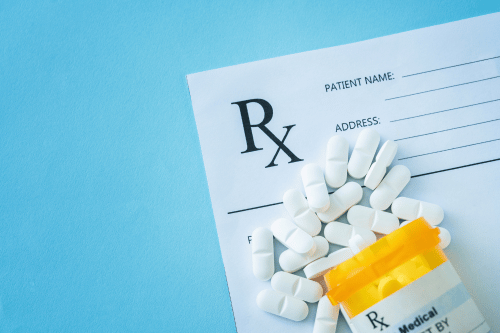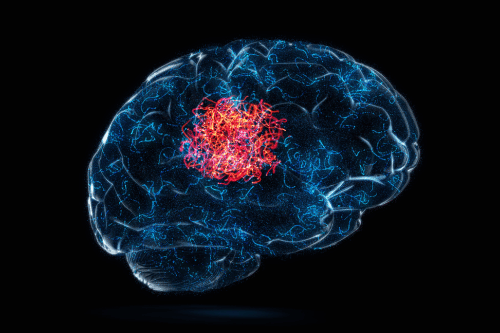

The K18 pill is a prescription drug used for effective pain management. It contains oxycodone hydrochloride, an opioid pain medication prescribed to relieve severe pain. As a powerful opioid, it has a potential for abuse and a risk of addiction when misused. Understanding its uses, dosage, potential side effects, and treatment options is essential for patient safety.
The K18 pill is a small, blue, round tablet with an imprint of “K18.” It contains oxycodone hydrochloride 5 mg, an immediate-release oxycodone formulation. This opioid drug is used to treat acute pain, injury-related pain, and postoperative pain, as well as cancer-related pain in some cases. Medical professionals prescribe it under careful monitoring to minimize the risk of overdose and opioid use disorder.
The pain-relieving effects of oxycodone hydrochloride tablets work by binding to mu-opioid receptors in the brain and spinal cord, altering the perception of pain. These opioid medications help patients with chronic ailments such as chronic pain conditions, postoperative pain, and cancer-related pain.
While the oxycodone hydrochloride tablet is primarily used for pain relief, some healthcare providers may prescribe it for alternative treatment options in select cases. However, off-label use should only be under the supervision of a healthcare professional to prevent opioid addiction and other adverse effects.

The usual dose of oxycodone hydrochloride for acute pain is 5 mg every 4 to 6 hours as needed. Patients should always take the prescribed dose as directed by their healthcare provider to avoid the risk of dependence and fatal overdose.
Oxycodone pills have a high potential for addiction, especially with long-term use. Signs of addiction include:

The action of oxycodone involves binding to opioid receptors in the central nervous system, altering pain signals and causing analgesic effects. However, long-term use can lead to opioid withdrawal syndrome and depression secondary to drug dependence.
Prolonged use of opioid medications can affect cognitive function and emotional regulation, leading to depression, anxiety, and impaired decision-making.
Mixing oxycodone hydrochloride with alcohol, depressant drugs, or nervous system depressants can lead to breathing difficulties, accidental overdose, and fatal overdose.
Certain prescription medications such as anticholinergic drugs, opioid receptor antagonists, and alternative treatments can interact with oxycodone, requiring a careful patient treatment goals assessment.
An overdose of oxycodone can cause circulatory depression, intracranial pressure, and even paralytic ileus. Symptoms include:
Chronic opioid use can lead to dependence to oxycodone, opioid use disorder, and an increased risk of overdose. Prolonged exposure alters oxycodone plasma concentration, affecting the body’s stable drug effects.
Addiction treatment centers offer individualized treatment plans, including behavioral therapy, medical detox, and alternative treatment options. Programs such as the Transcend Recovery Community provide structured recovery support.
The K18 pills containing oxycodone hydrochloride are an effective opioid pain medication but come with serious potential risks. Medical professionals must carefully monitor patients to prevent opioid addiction, pill addiction, and prescription drug abuse. Safe use requires adherence to the prescribed dose, avoiding illicit drugs, and considering alternative treatment options. If you or someone you know is struggling with substance use disorder, seek help from a healthcare provider or an addiction treatment center to start the path to recovery.

At Sullivan Recovery, as an in-network provider we work with most insurance plans, such as:
And More
If you or a loved one are struggling with mental health challenges or substance abuse, reach out to Sullivan Recovery today. Our team of compassionate professionals is here to support your journey towards lasting well-being. Give us a call at 949-836-7180.
The K18 pill contains oxycodone hydrochloride 5 mg, an opioid pain medication prescribed for moderate to severe pain. It is commonly used for postoperative pain, injury-related pain, and chronic pain conditions. Due to its potential for addiction and dependence, it should only be taken as prescribed by a healthcare provider.
The K18 pill carries several potential risks, including opioid addiction, physical dependence, and respiratory depression. Misuse or overdose can lead to life-threatening respiratory depression, circulatory depression, and fatal overdose. Patients should also be aware of common side effects such as dizziness, nausea, and constipation, as well as severe side effects like trouble breathing and chest pain.
Yes, the K18 pill can have dangerous interactions with alcohol, depressant drugs, nervous system depressants, and other opioid medications. Mixing oxycodone hydrochloride with these substances can increase the risk of breathing difficulties, accidental overdose, and severe sedation. Patients should inform their healthcare professional about all prescription medications they are taking to avoid adverse effects.
If an overdose of oxycodone is suspected, seek immediate medical attention by calling 911. Symptoms of overdose include slow breathing, pinpoint pupils, unconsciousness, and clammy skin. If you or a loved one is struggling with opioid addiction, consider treatment options such as medical detox, behavioral therapy, support groups, and addiction treatment centers. Healthcare providers can help develop an individualized treatment plan for recovery.